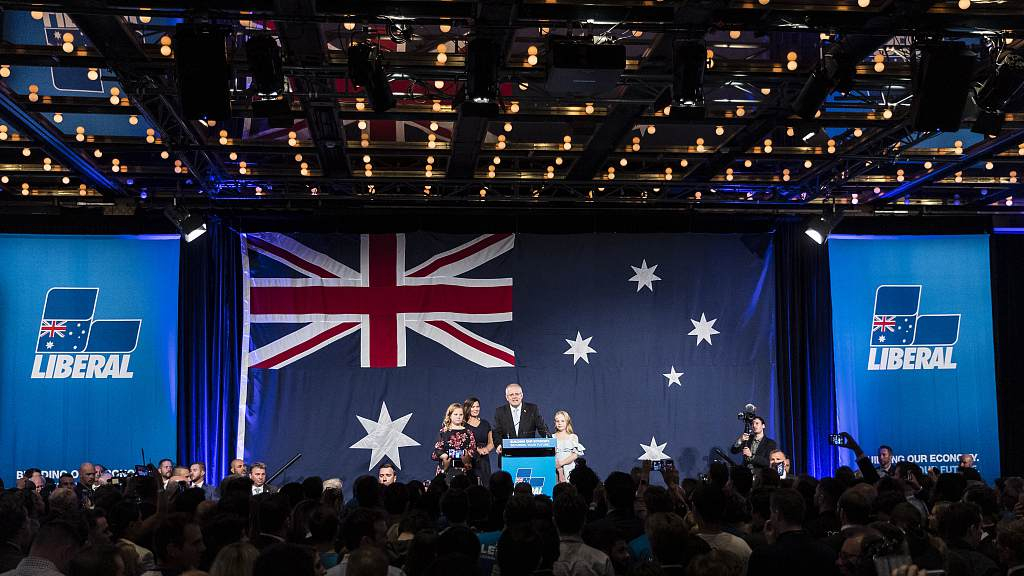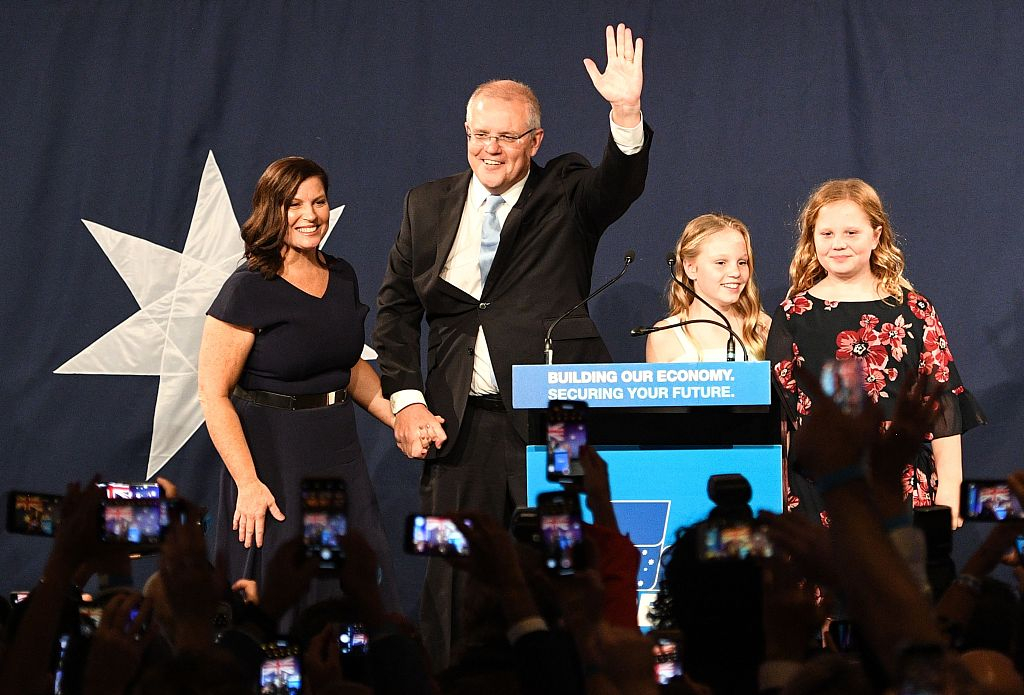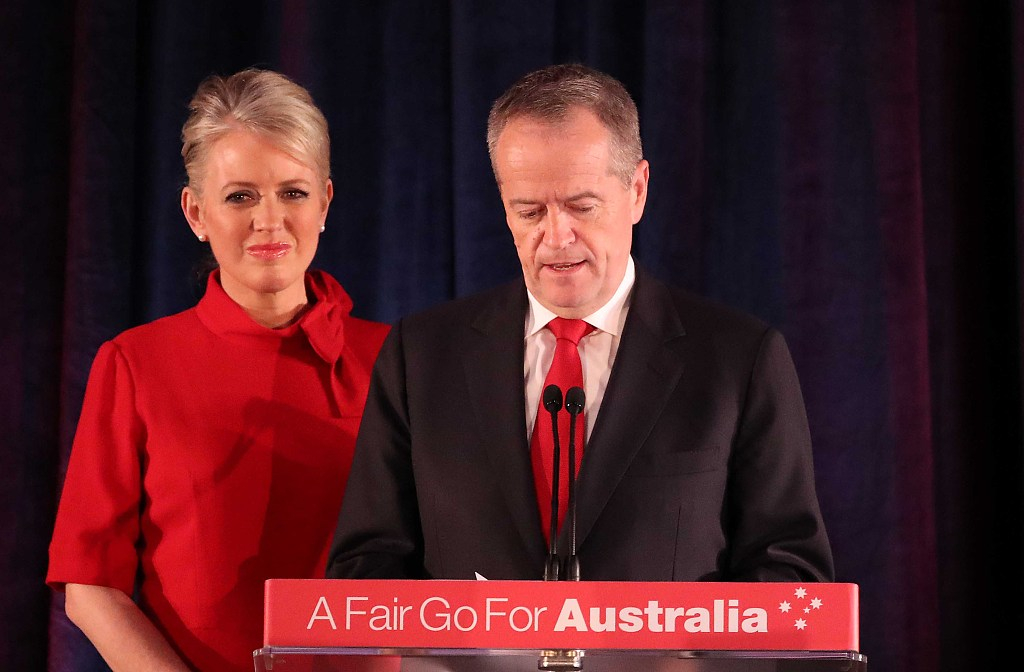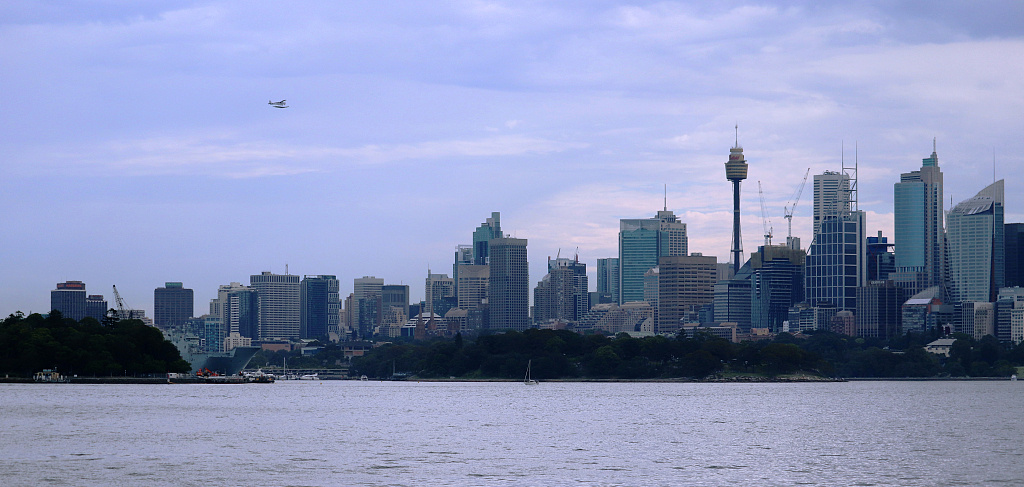
Analysis
22:55, 20-May-2019
Analysis: Australia can have a pro-China and pro-U.S. policy
Updated
10:15, 22-May-2019
Chu Xiaoji

On May 18, incumbent Australian Prime Minister Scott Morrison's party just won the federal election. As one of the Asia-Pacific region's most important relationships, Australia's relationship with China was one of the important topics in the election. What is its nature, and what will its future be?
People-to-people relations growing
Nicholas Reece, a principal fellow with the Melbourne School of Government at the University of Melbourne, believes that the relationship between Australia and China will continue to be strengthened and improved. The deepening relationship between China and Australia is bigger than any election result and will continue to grow with the re-election of the Liberal/National Coalition Government. There are great benefits for both countries from the close trade relationship, and all the interactions between the two countries' citizens, through studying abroad and immigrating.

Australian Prime Minister Scott Morrison (C) arrives to deliver a victory speech with his family after winning Australia's general election in Sydney, NSW, Australia, May 18, 2019. /VCG Photo
Australian Prime Minister Scott Morrison (C) arrives to deliver a victory speech with his family after winning Australia's general election in Sydney, NSW, Australia, May 18, 2019. /VCG Photo
"China has been Australia's biggest trading partner; it is also the biggest source of new immigrants. These relations are growing to the benefit of both countries," Reece told CGTN.
Reece believes that the key factor underpinning the stable development of the Australia-China relationship is the closeness of people-to-people relations between the two countries.
With 231,191 Chinese students enrolled in Australian higher education institutions in 2017, China is the biggest source of international students in Australia, accounting for around 29 percent of the total.
Based on his experience teaching at the University of Melbourne, Reece noted that international students from China not only benefit from learning about Australia, they also enable Aussies to get to know China and its development. This plays a vital role in promoting the relationship between the two countries.
In addition, more Chinese are choosing to immigrate to Australia, creating even more links between families and friends in the two countries. Some new Chinese immigrants are enthusiastically getting involved in politics. The 2019 election was notable for having two Chinese-Australian candidates representing the two leading political parties running against each other in the same electorate. Reece observes that their participation was one of the bright spots of the election, and shows what a multicultural and diverse country Australia has become.
"With the vote held on Saturday, we now have the first Chinese Australian woman elected to our parliament, which is a very positive thing for our country" Reece told CGTN.
Trade relations to remain stable
According to Associate Professor Bligh Grant from the Center for Local Government at the University of Technology Sydney (UTS), the Australian Prime Minister Morrison will continue to pursue a pro-China policy in terms of strengthening trade and diplomatic relations.
"The election won't see Australia any more 'pro-Trump' or any less 'pro-China.' The coalition will welcome continued strengthening relations with China," Grant told CGTN.
In his opinion, Morrison might focus on trade ties as policy, leaving cultural links to civil society and business.

The leader of the Australia Labor Party Bill Shorten (R), flanked by his wife Chloe Shorten, concedes defeat following the results of the Federal Election at Hyatt Place Melbourne, Victoria, Australia, May 18, 2019. /VCG Photo
The leader of the Australia Labor Party Bill Shorten (R), flanked by his wife Chloe Shorten, concedes defeat following the results of the Federal Election at Hyatt Place Melbourne, Victoria, Australia, May 18, 2019. /VCG Photo
Grant believes that Morrison is seeking to prioritize trade ties with China because China is Australia's largest trading partner by far in terms of both exports and imports. Australia exports vast quantum's of coal, iron ore and (onshore) tertiary education to China, as well as agricultural products; and Australia imports vast quantities of Chinese manufactured goods.
As he points out, in this scenario, Australia-China relations are set to remain very stable because of their mutual interests and compatibility in international trade.
"All political parties recognize the centrality of the relationship to our three biggest exports – coal, iron-ore and education – and to its agricultural industries," Grant told CGTN.
Challenges ahead
Thanks to trade links and people's mobility, overall relations between China and Australia are very positive. This does not mean there are no challenges in the relationship, of course.
Reece believes that the Australian Government's refusal last year to use Huawei in constructing its 5G network presents some challenges for ties between Australia and China.

Sydney's skyline, Sydney, NSW, Australia. /VCG Photo
Sydney's skyline, Sydney, NSW, Australia. /VCG Photo
"I think the biggest challenge (for Morrison) will be maintaining positive relations with both China and the U.S. while China continues to bolster its position as a dominant power. Both Australia and China need to ensure that issues such as Huawei do not detract from the broad and deep relationship that exists between the two countries," Reece said.
China is Australia's biggest export market, but Australia is also one of the most important Asia-Pacific trade partners of the U.S.
The China-U.S. trade war could have a massive impact on Australia's economy and diplomatic relationships. Grant believes that Morrison needs to come up with a plan to ensure that Australia does not lose out too much as a result of this trade war, and manages to maintain good relations with both China and the U.S. This will be a significant challenge.
"Undoubtedly, U.S.-China relations are in the frame, but Morrison will be very aware that Australia can have a pro-China and pro-U.S. policy," Grant said.
(If you want to contribute and have specific expertise, please contact us at opinions@cgtn.com.)

SITEMAP
Copyright © 2018 CGTN. Beijing ICP prepared NO.16065310-3
Copyright © 2018 CGTN. Beijing ICP prepared NO.16065310-3